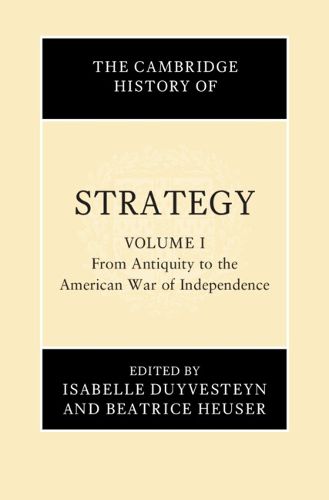Readings Newsletter
Become a Readings Member to make your shopping experience even easier.
Sign in or sign up for free!
You’re not far away from qualifying for FREE standard shipping within Australia
You’ve qualified for FREE standard shipping within Australia
The cart is loading…






Volume I of The Cambridge History of Strategy offers a history of the practice of strategy from the beginning of recorded history, to the late eighteenth century, from all parts of the world. Drawing on material evidence covering two and a half millennia, an international team of leading scholars in each subject examines how strategy was formulated and applied and with what tools, from ancient Greece and China to the Ottoman and Mughal Empires and the American Revolutionary War. They explore key themes from decision-makers and strategy-making processes, causes of wars and war aims and tools of strategy in war and peace, to configurations of armed forces and distinctive and shared ways of war across civilisations and periods. A comparative conclusion examines how the linking of political goals with military means took place in different parts of the world over the course of history, asking whether strategic practice has universal features.
$9.00 standard shipping within Australia
FREE standard shipping within Australia for orders over $100.00
Express & International shipping calculated at checkout
Volume I of The Cambridge History of Strategy offers a history of the practice of strategy from the beginning of recorded history, to the late eighteenth century, from all parts of the world. Drawing on material evidence covering two and a half millennia, an international team of leading scholars in each subject examines how strategy was formulated and applied and with what tools, from ancient Greece and China to the Ottoman and Mughal Empires and the American Revolutionary War. They explore key themes from decision-makers and strategy-making processes, causes of wars and war aims and tools of strategy in war and peace, to configurations of armed forces and distinctive and shared ways of war across civilisations and periods. A comparative conclusion examines how the linking of political goals with military means took place in different parts of the world over the course of history, asking whether strategic practice has universal features.